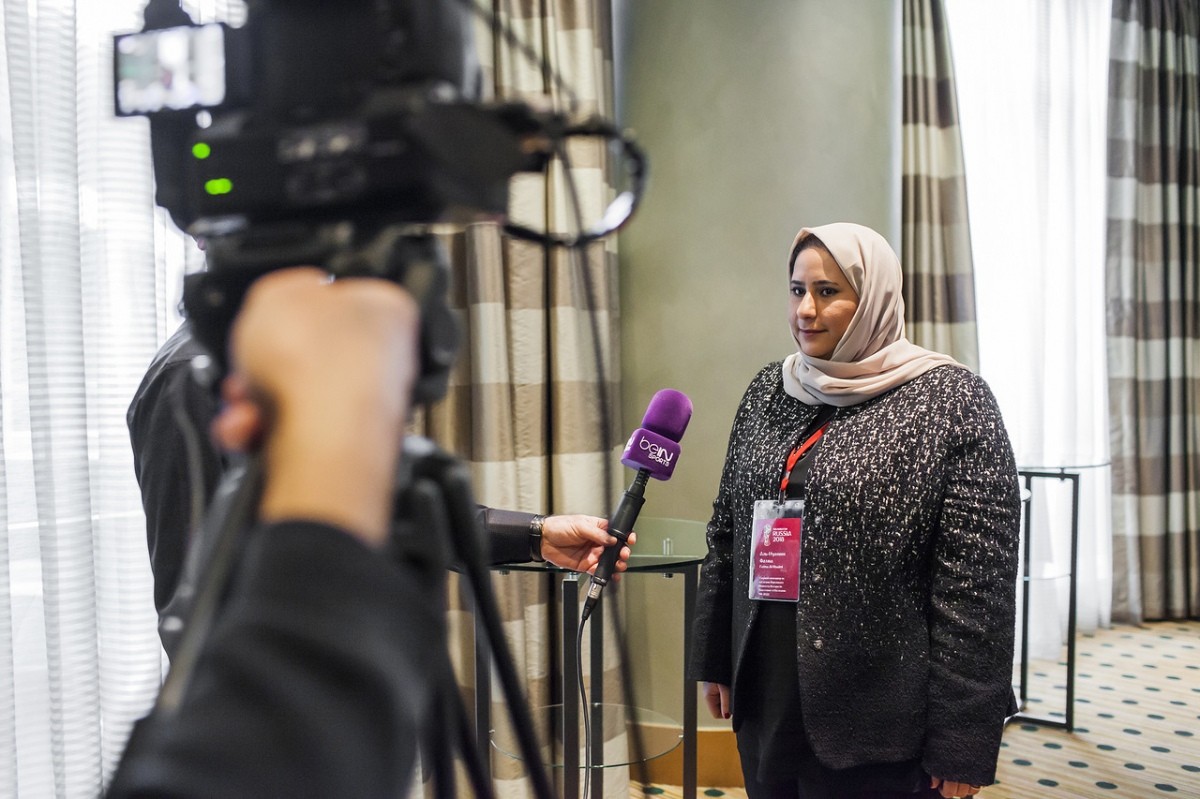.jpg)
_1-itok=GFMKQ6A9.jpg)
The Russia 2018 Local Organising Committee hosted previous and upcoming FIFA World Cup and Olympic Games hosts in a conference entitled "FWC - 2018: Shaping the Future. Impact and Legacy of Major Sporting Events" on December 8th in Moscow.
The conference, attended by 100 guests from FIFA representatives, International Olympic Committee (IOC) representatives, host country representatives and government representatives from the Russian federation, is following the Confederation Cup draw, as the host country prepares to host the upcoming tournament prior to hosting the 2018 FIFA World Cup in 2018.
The forum was attended Natalya Parshikova, State Secretary - Deputy Minister at the Russian Federation Ministry of Sport, Alexey Sorokin, General Director of the Russia 2018 Local Organising Committee, Wilfried Lemke, Special Adviser to UN Secretary General on Sport for Development and Peace, Federico Addiechi, Head of Sustainability and Diversity at FIFA and Fatma Al Nuaimi, Communications Director at the Supreme Committee for Delivery & Legacy (SC).
"We've learned from previous World Cup experiences that the awareness and perception of host cities greatly increase after hosting the World Cup, using Germany 2006 as an example. Millions of people watching and attending the World Cup will familiarise themselves with Moscow and the remaining host cities," said Parshikova, as part of the Russian Federation, "The tournament will only cover one month but the legacy will last long after that."
Al Nuaimi presented in the first plenary session, titled "Growing Importance of Legacy and Impact of Major Sporting Events" discussing SC competition venues and legacy projects, including social, human and environmental legacy.
"It's rare to be part of a conference with representatives from three Olympic Games and four World Cups, as we share experiences and knowledge in the impact of event planning, operational planning and legacy planning for hosting such a mega event," said Al Nuaimi. "Since we won the bid to host the 2022 FIFA World Cup, we have incorporated legacy in all of our plans, keeping in mind that the tournament may only last a month, but the community will benefit in the decades to come."
Addiechi added that for the 2014 FIFA World Cup™ in Brazil, the Brazilian government decided that all the competition venues have to undergo the green building requirement that is now a mandatory requirement for FIFA.
Recently, the SC announced that FIFA have accepted 4 star GSAS certification for proposed competition venues in Qatar, as a substitute for LEED Certification. GSAS is a product of GORD, a local company in Qatar.
"Aiming at leaving a positive legacy has increasingly become more important for all actors involved in FIFA World Cups," said Addiechi. "As football's world governing body and organisers of the FIFA World Cup, we are well aware of our role and responsibility to make the event more sustainable and to be a leader in this endeavour. Planning our events sustainably and well ahead is key to a positive legacy and to success."
The conference included two discussion panels, namely "Legacy for host countries and host cities - case studies from previous major sport events" and "Approach of host countries and host cities to the planning of major sport events."
The plenary session and discussion panel also included representatives from Russia 2018 Local Organising Committee, 2010 FIFA World Cup in South Africa, 2010 Winter and Paralympic Games, Whistler, Canada, 2016 Olympic Games in Rio, World Health Organisation (WHO - Russian Federation), Moscow State University, IOC, Sochi City, and the Executive Committee of Kazan.

